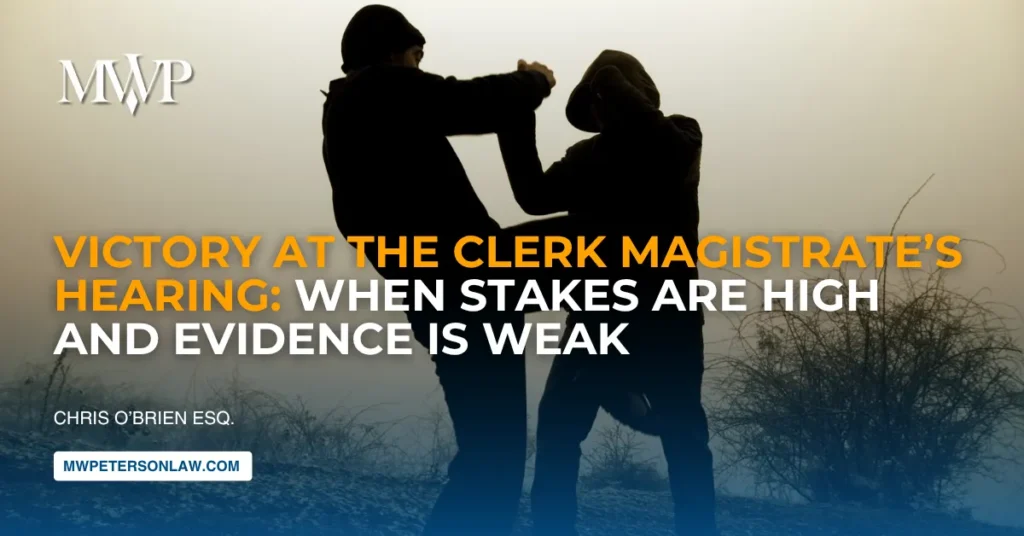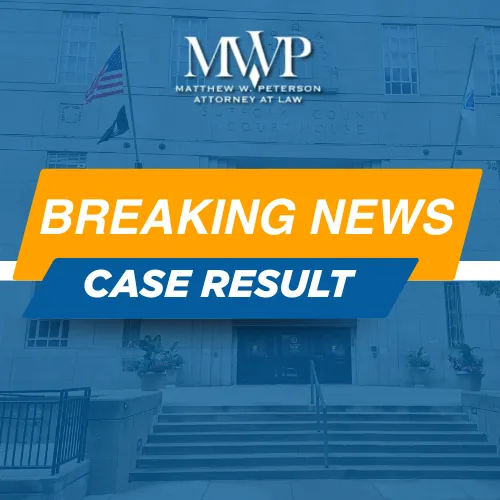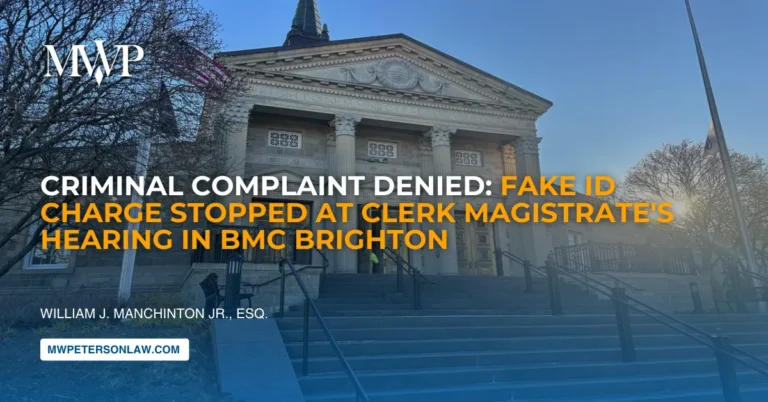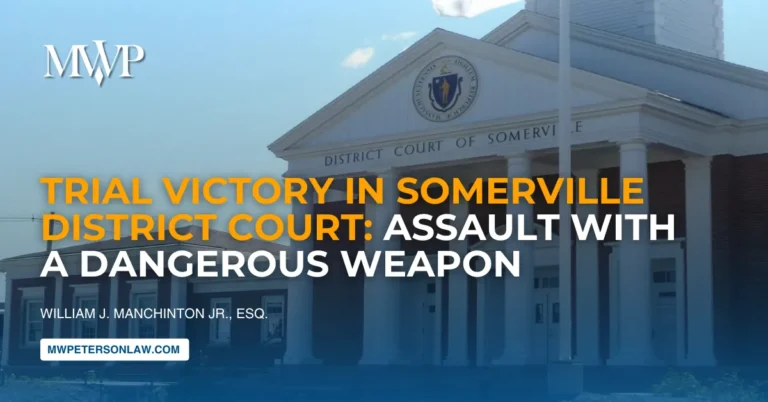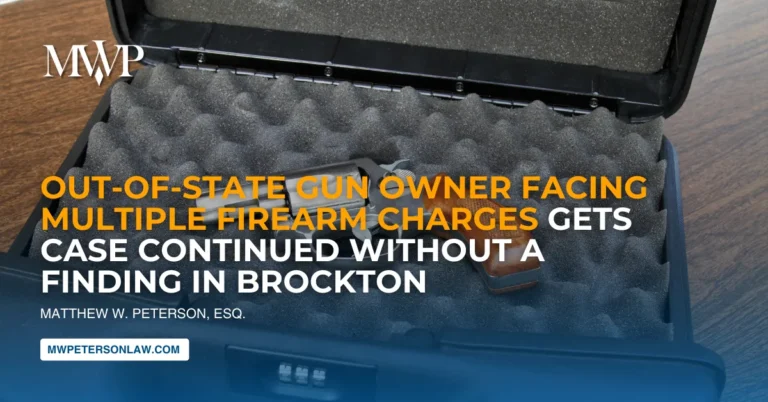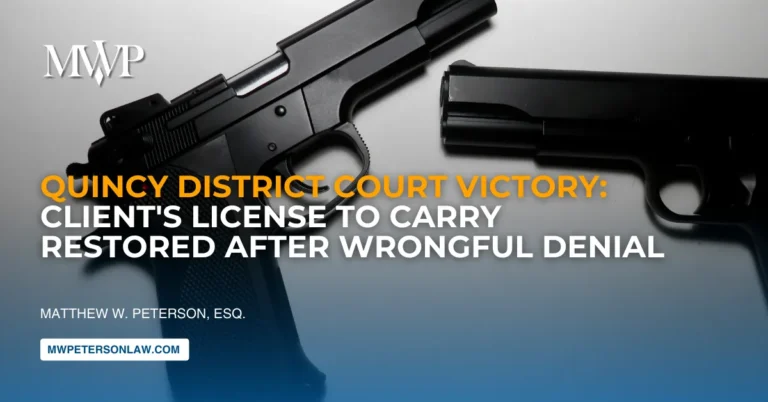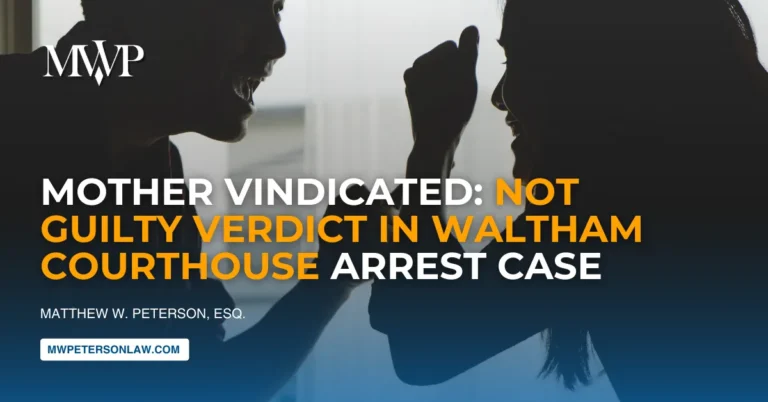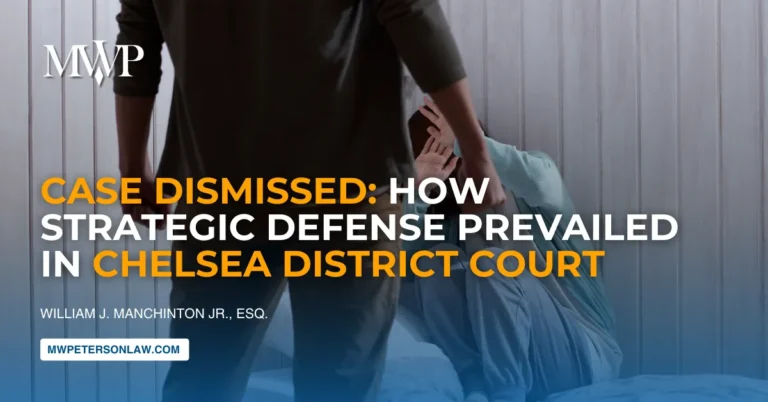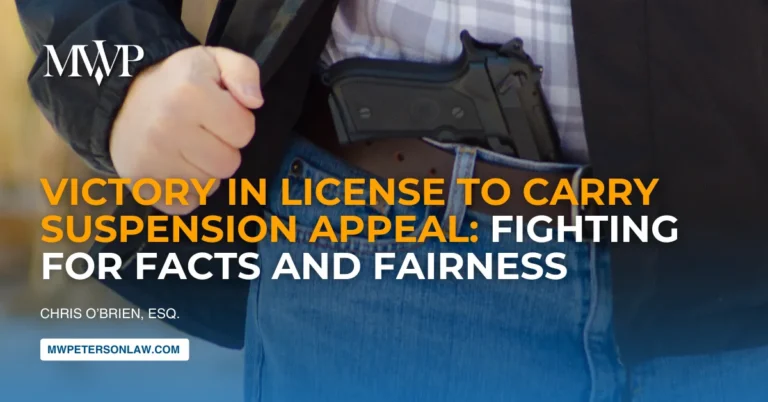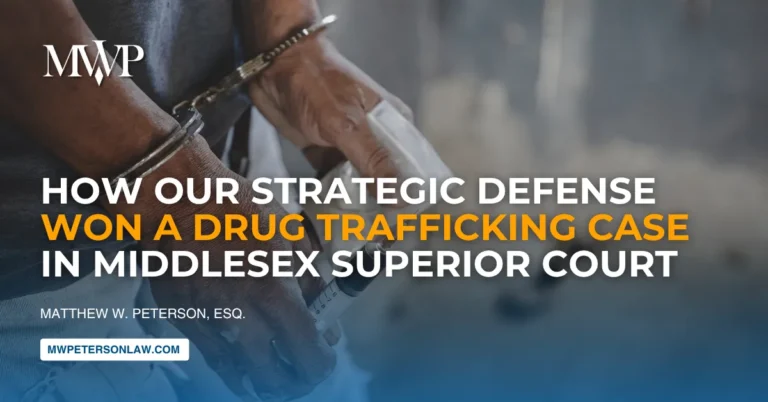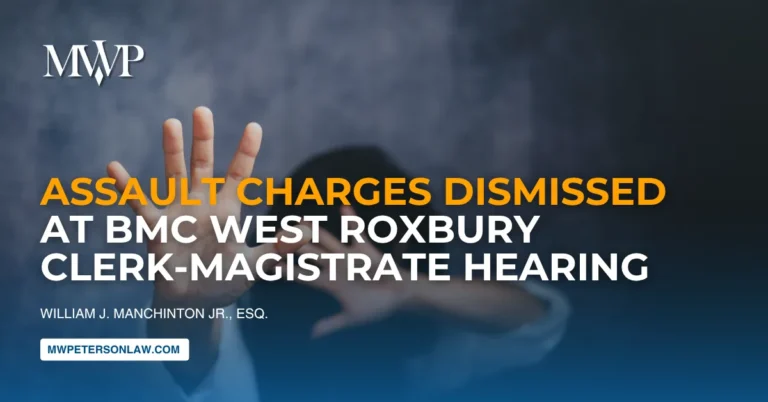Not every legal victory happens in a courtroom. Some of the most important wins occur in a small hearing room, where a clerk magistrate decides whether criminal charges should even be issued in the first place. Recently, the Law Office of Matthew W. Peterson secured exactly this kind of victory for a client whose entire professional life hung in the balance over allegations that simply didn’t hold up under scrutiny.
The Allegations and the Stakes
What began as a neighborhood dispute, by all accounts a heated but entirely verbal argument, took a serious turn when one party claimed our client had shoved them. That single allegation was enough for police to seek an application for a complaint for assault and battery through a clerk magistrate’s hearing.
For most people, facing potential criminal charges is stressful. For our client, a highly successful professional, the consequences extended far beyond the usual concerns. His career requires regular background checks for new qualifications, specialized training, and professional opportunities. Here’s what many people don’t realize: even dismissed charges appear on background checks in Massachusetts unless they’re sealed, and even then, there are no guarantees.
This wasn’t about protecting someone from a criminal record after conviction. This was about preventing charges from being issued in the first place, because for this client, simply being charged could derail everything he’d built.
Why Clerk Magistrate Hearings Matter
In Massachusetts, clerk magistrate hearings serve as a critical safeguard against unnecessary criminal prosecution. Before charges are formally issued for many offenses, the application goes before a clerk magistrate who evaluates whether there’s probable cause and whether issuing the charges serves the interests of justice.
This is where preparation and advocacy can make all the difference. Unlike a trial, these hearings are less formal, but they require a strategic approach that considers both the legal and practical dimensions of the case.
Building the Defense
Our preparation focused on two parallel arguments that, together, made a compelling case for the clerk magistrate.
First, we had to address the evidence, or lack thereof. The alleged shove was just that: alleged. Half of the witnesses to the incident did not support this version of events. When you’re asking a clerk to issue criminal charges that will follow someone for life, the evidence needs to be solid. Here, it simply wasn’t.
Second, and equally important, we needed the clerk to understand what was truly at stake. This wasn’t just another case file. This was a person who supported an entire family. Someone who contributes meaningfully to their professional community. Someone who volunteers their time working with at-risk communities. All of those contributions to society could vanish if charges were issued over an unsupported allegation from a neighborhood argument.
The Hearing and the Result
At the hearing, we presented both sides of this equation: the weakness of the evidence and the disproportionate consequences of proceeding with charges. We asked the clerk to weigh these factors carefully. How serious are the alleged actions? How reliable is the evidence? What happens to this person’s life if we move forward?
The clerk agreed with our position. Rather than issuing charges, the matter was held for a period, after which time it will be dismissed entirely.
This is about as close to a complete victory at the Clerk Magistrate’s Hearing as you can achieve in these circumstances. Our client will not be charged. His unblemished record remains exactly that unblemished. The unsupported accusations will not color his future opportunities, his family’s security, or his ability to continue serving his community.
The Larger Lesson
This case illustrates why clerk magistrate hearings are so valuable and why having experienced representation matters at this early stage. Once charges are issued, you’re in the criminal justice system. Even if those charges are later dismissed, they create complications that can last years.
The better path is to prevent charges from being issued when the evidence doesn’t support them and when the consequences of prosecution far outweigh any legitimate interest in moving forward.
For professionals whose careers depend on clean records, for people supporting families, for anyone facing allegations in emotionally charged situations the clerk magistrate’s hearing may be your best opportunity to stop a case before it starts. And that, as our client learned, is a victory worth fighting for.

